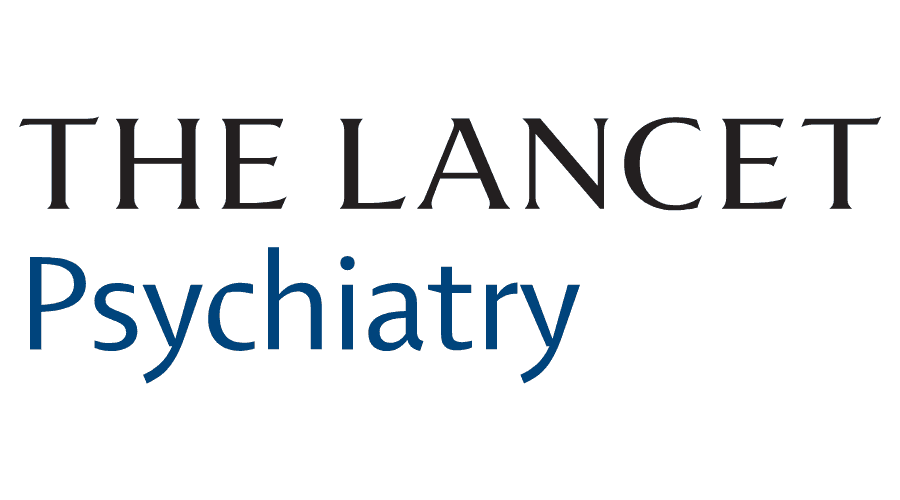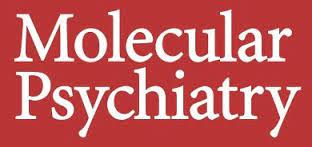Image Credit: Nature
Current Psychiatric Categories Represent
Flawed Conceptualizations
(Selected, NoN-Exhaustive Research)
"Researchers are also drastically rethinking theories of how our brains go wrong.
"The idea that mental illness can be classified into distinct, discrete categories such as ‘anxiety’ or ‘psychosis’ has been disproved to a large extent.
"Instead, disorders shade into each other, and there are no hard dividing lines — as Plana-Ripoll’s study so clearly demonstrated."
-----The hidden links between mental disorders
Psychiatrists have a dizzying array of diagnoses and not enough treatments.
Hunting for the hidden biology underlying mental disorders could help.
Nature (May 2020)
|
Val's Take
The reality is I'm NOT doing all this research because I just want to --- I'm doing it because the MENTAL HEALTH PROFESSION doesn't --- and I don't have any reasonable expectation that they will. The question of correlation is messier than what I've presented --- BUT the ULTIMATE ISSUE is the underlying biology --- whether that's being affected by TRAUMA, MATERNAL IMMUNE ACTIVATION or a MYRIAD OF OTHER FACTORS. That underlying biology for psychiatric disorders seems to involve the immune system, the microbiome and the endocrine system as well as the brain. My impression is that no mental health professionals are particularly against incorporating more recent understandings and maybe treatments to reduce INFLAMMATION, etc. --- this needs to come down a CHAIN OF COMMAND professionals recognize and they actually use --- that means more than the ACADEMIC JOURNALS. This becomes particularly problematic in CRIMINAL JUSTICE with widespread diagnosis of ANTI-SOCIAL PERSONALITY DISORDER that is now being conceptualized at least by the University of Pennsylvania as a DEVELOPMENTAL DISORDER . That re-conceptualization has legal implications and even the doubt has legal implications. In conclusion, controversy over the DSM 5 is not new -- what we do need are:
A Model-Based Strategy for Interfacing Traits of the DSM-5 AMPD With Neurobiology (2020)
Abstract Excerpt The DSM-5 alternative model for personality disorders (AMPD) groups traits into domains based on factor analyses of self-report data. AMPD traits may need to be configured differently to interface with neurobiology. Focusing on biobehavioral risk for externalizing problems in 334 adults, the authors used structural modeling to evaluate how well alternative configurations of AMPD traits, operationalized using the Personality Inventory for DSM-5 (PID-5), interface with neural indicators of externalizing liability. A model specifying two correlated factors defined by traits within the PID-5 Disinhibition domain and brain-response indicators of externalizing proneness exhibited inadequate fit. However, a model using PID-5 traits with better coverage of biobehavioral externalizing liability evidenced good fit. Autism beyond diagnostic categories: characterization of autistic phenotypes in schizophrenia (2015)
Abstract Excerpt Background: Behavioral phenotypical continua from health to disease suggest common underlying mechanisms with quantitative rather than qualitative differences. Until recently, autism spectrum disorders and schizophrenia were considered distinct nosologic entities. However, emerging evidence contributes to the blurring of symptomatic and genetic boundaries between these conditions. The present study aimed at quantifying behavioral phenotypes shared by autism spectrum disorders and schizophrenia to prepare the ground for biological pathway analyses. Brain microglia in psychiatric disorders (2017)
Abstract The role of immune activation in psychiatric disorders has attracted considerable attention over the past two decades, contributing to the rise of a new era for psychiatry. Microglia, the macrophages of the brain, are progressively becoming the main focus of the research in this field. In this Review, we assess the literature on microglia activation across different psychiatric disorders, including post-mortem and in-vivo studies in humans and experimental studies in animals. Although microglia activation has been noted in all types of psychiatric disorder, no association was seen with specific diagnostic categories. Furthermore, the findings from these studies highlight that not all psychiatric patients have microglial activation. Therefore, the cause of the neuroinflammation in these cohorts and its implications are unclear. We discuss psychosocial stresses one of the main factors determining microglial activation in patients with psychiatric disorders***, and explore the relevance of these findings for future treatment strategies. **** Val's Note: I think a lot of "PSYCHOSOCIAL STRESS" is the result of UNRECOGNIZED DEVELOPMENTAL WEAKNESSES, and then LATER UNRECOGNIZED (or DIS-RECOGNIZED) DEVELOPMENTAL STRENGTHS. A lot of people with psychiatric problems are very bright and talented but they are coming with EXECUTIVE FUNCTIONING ISSUES -- and if the Mental Health Profession doesn't know how to systemically identify the challenges and at least get the person to an OCCUPATIONAL THERAPIST or COACH --- therapy sessions tend to be a waste of money in some cases -- if not SNAKE OIL when it comes to addressing EXECUTIVE FUNCTIONING. Another way to look at this --- the person is just coming in an unconventional package --- and they often have STRENGTHS that need to be developed through EDUCATION & SUPPORTIVE EMPLOYMENT --- that has to take into account BOTH the EXECUTIVE FUNCTIONING CHALLENGES and BUILDING on the Person's often considerable strengths. I can say from personal experience failure to do either one of those is going to worsen mental health symptoms and that is corroborated by some research. What does that mean? You just can't cram people with psychiatric disorders in menial jobs even if they have executive functioning issues. Now, neuro-typicals have issues too, but they are largely in the majority and accommodations are built into the system. That is NOT TRUE for people with atypical need for accommodations. From my perspective, it is the FAILURE, the GROSS FAILURE to RECOGNIZE & ACCOMMODATE those NEEDS & BUILD on those STRENGTHS that leads to much PSYCHO-SOCIAL STRESS. |
Neuroscience News Brains of People With Schizophrenia Related Disorders Aren’t All the Same https://neurosciencenews.com/schizophrenia-neurobiology-10430/ Canadian researchers say: "It turned out that the relationship between brain function and social behavior had nothing to do with conventional categories in the DSM-5 (Diagnostic and Statistical Manual of Mental Disorders)
Discoveries on the Genetics of ADHD in the 21st Century: New Findings and Their Implications (2018)
Abstract Excerpt The 21st century has witnessed the discovery of multiple rare and common gene variants associated with attention deficit hyperactivity disorder (ADHD), and these discoveries have already provided a starting point for the investigation of the biology of the disorder and novel treatments. The purpose of this selective review is to examine genetic findings from the past 5 years and consider their implications for the conceptualization of ADHD and future clinical practice. Recent discoveries reveal the strong genetic overlaps between ADHD and autism spectrum disorder (ASD) as well as intellectual disability. Thus, the removal of the previous diagnostic exclusion criteria for ADHD in the presence of ASD is a welcome change in DSM-5. However, ADHD also shows substantial genetic correlations with a much broader group of neuropsychiatric disorders as well as with nonpsychiatric conditions (e.g., lung cancer). Investigating potential explanations for these links is an important next step. ADHD, while usefully conceptualized as a disorder in clinical practice, can be viewed as a trait. Recent genome-wide association study findings, consistent with twin studies, highlight that ADHD lies at the extreme end of a continuously distributed dimension, akin to hypertension along the continuum of blood pressure. Although ADHD levels typically decline with age, twin and molecular genetic studies suggest that a persistent trajectory is associated with higher genetic loading. Animal Models of PTSD: A Critical Review (2018)
Abstract Excerpt The goals of animal research in post-traumatic stress disorder (PTSD) include better understanding the neurophysiological etiology of PTSD, identifying potential targets for novel pharmacotherapies, and screening drugs for their potential use as PTSD treatment in humans. Diagnosis of PTSD relies on a patient interview and, as evidenced by changes to the diagnostic criteria in the DSM-5, an adequate description of this disorder in humans is a moving target. Psychiatric genetics and the structure of psychopathology (2018)
Abstract For over a century, psychiatric disorders have been defined by expert opinion and clinical observation. The modern DSM has relied on a consensus of experts to define categorical syndromes based on clusters of symptoms and signs, and, to some extent, external validators, such as longitudinal course and response to treatment. In the absence of an established etiology, psychiatry has struggled to validate these descriptive syndromes, and to define the boundaries between disorders and between normal and pathologic variation. Recent advances in genomic research, coupled with large-scale collaborative efforts like the Psychiatric Genomics Consortium, have identified hundreds of common and rare genetic variations that contribute to a range of neuropsychiatric disorders. At the same time, they have begun to address deeper questions about the structure and classification of mental disorders: To what extent do genetic findings support or challenge our clinical nosology? Are there genetic boundaries between psychiatric and neurologic illness? Do the data support a boundary between disorder and normal variation? Is it possible to envision a nosology based on genetically informed disease mechanisms? This review provides an overview of conceptual issues and genetic findings that bear on the relationships among and boundaries between psychiatric disorders and other conditions. We highlight implications for the evolving classification of psychopathology and the challenges for clinical translation. MicroRNAs and exosomes in depression: Potential diagnostic biomarkers (2018) Abstract Depression is known as one of important psychiatric disorders which could be associated with disability among various populations. Diagnostic and statistical manual of mental disorders, 4th edition (DSM-IV) and international statistical classification of diseases and related health problems (ICD-10) could be used as subjective diagnostic schemes for identification of mental disorders such as depression. Utilization of subjective diagnostic schemes are associated with limitations. Hence, it seems that employing of new diagnosis platforms is required. Multiple lines of evidence indicated that measurement of several biomarkers could be useful for detection patients with depression. Among of various types of biomarkers, microRNAs (miRNAs) have been emerged as powerful tools for diagnosis patients with depression. MiRNAs are small non-coding RNAs which act as epigenetic regulators. It has been showed that these molecules have critical roles in pathogenesis of many diseases such as depression. These molecules exert their effects via targeting a variety of cellular and molecular pathways involved in initiation and progression of depression. Hence, miRNAs could be used as diagnostic and therapeutic biomarkers in patients with depression. Besides miRNAs, exosomes as nano- carriers could have been emerged as diagnostic biomarkers in several diseases such as depression. These vesicles are able to carry several cargos such as DNAs, proteins, mRNAs, and miRNAs to recipient cells. Here, we summarized several miRNAs involved in pathogenesis and response to treatment of depression which could be used as diagnostic biomarkers. Moreover, we highlighted exosomes as new diagnostic biomarkers for patients with depression. |
DRAFT: Innate & Adaptive Immunity in Cognitive Disorders
Your browser does not support viewing this document. Click here to download the document.







